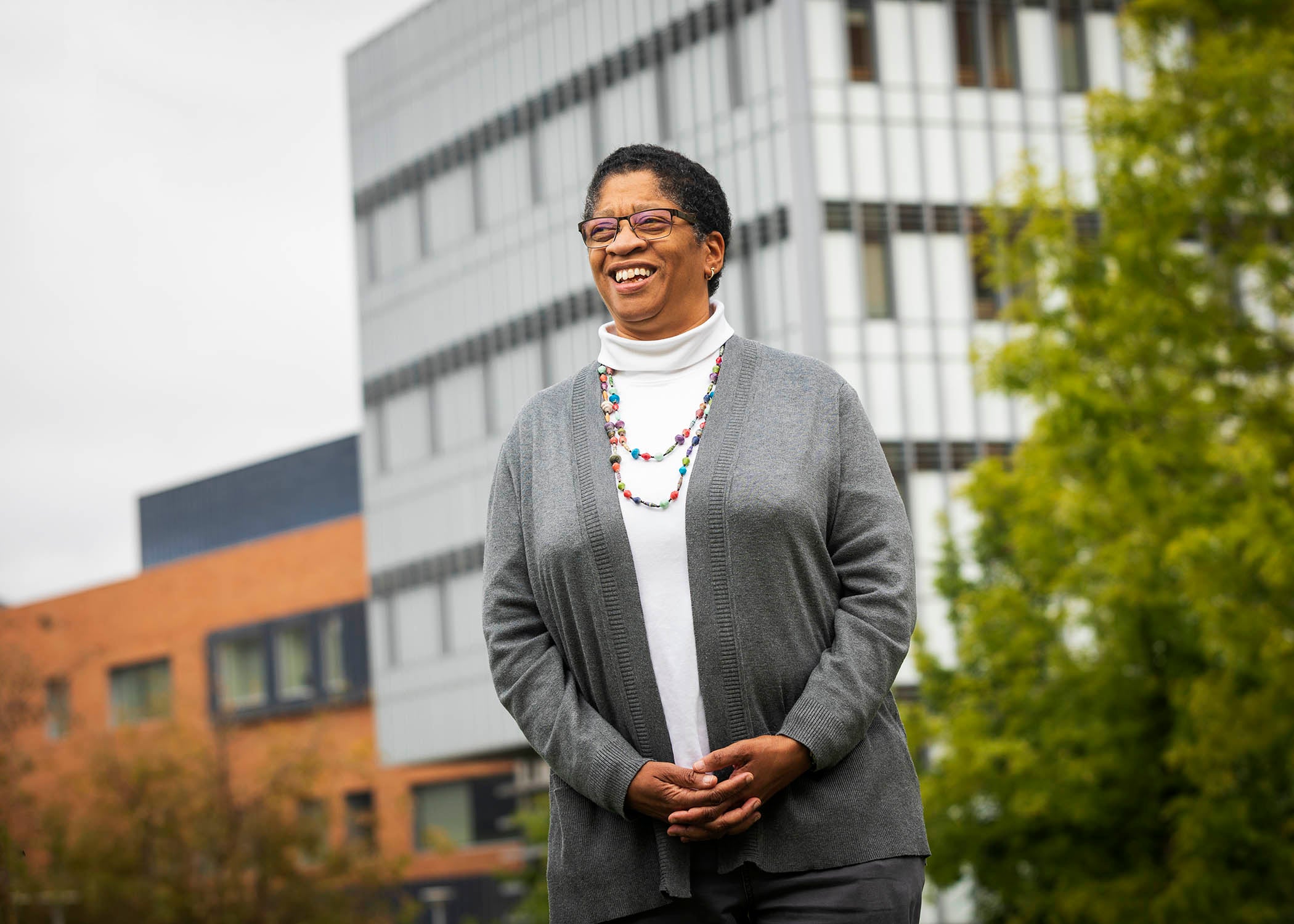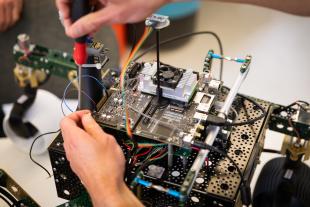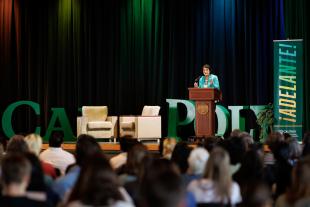'Everyone Can Thrive.' New Grant Supports Inclusive Teaching in STEM
Cal Poly received a $475,000 grant from the Howard Hughes Medical Institute (HHMI) towards advancing diversity, equity and inclusion, or DEI, goals over the next six years among educators who teach STEM — science, technology, engineering and mathematics.

It joins 103 other U.S. colleges and universities to be awarded funding from the Chevy Chase, Maryland-based medical research nonprofit’s Inclusive Excellence 3 (IE3) Program that is part of an initiative designed to encourage a more-inclusive learning environment for underrepresented STEM students. Camille O’Bryant, the university’s HHMI IE3 program director, said faculty will also work to develop new DEI-related instructional guidance, mentoring and evaluation, among other support mechanisms.
“Cal Poly has a unique and historically grounded responsibility to address racial and economic inequality in California and the nation,” said O’Bryant, the associate dean for Student Success and Welfare and Issues of Diversity and Inclusion in the College of Science and Mathematics. “We are therefore committed to transforming how we promote and evaluate inclusive teaching practices so that we can better create learning environments where all students thrive.”
HHMI’s IE3 refers to the third round of grant funding, which inspires college and university faculty, staff, students and administrators to develop frameworks for more-inclusive teaching practices that value, engage and support a diverse student body.
HHMI established seven Learning Community Clusters (LCCs) in this current funding round to address inclusive excellence in STEM education. Since the program began, HHMI has awarded $60 million in grants to 161 schools.
Cal Poly will collaborate with 14 other public and private colleges and universities nationwide also selected to develop and enhance inclusive teaching practices. These include: Occidental College and UC Irvine in California; the University of Connecticut; Georgia State University; Indiana’s Marian University; Centre College in Kentucky; the University of Mississippi; Cleveland State University and The College of Wooster in Ohio; Drexel University in Philadelphia; South Carolina’s Coker University; Lane College in Tennessee; and the University of Richmond and West Virginia University.
Their LCC will explore developing and refining evaluation procedures for effective and inclusive instruction methods, which will foster improved faculty awareness, as well promotion and tenure incentives.
Cal Poly is working to become a California State University Hispanic-Serving Institution, as defined by the federal Higher Education Act, where at least 25 percent of undergraduate, full-time enrollment is Hispanic; and at least half of the institution’s degree-seeking students come from low-income households.
In advance of that goal, Cal Poly has enhanced its DEI commitment and initiatives through multiple proactive measures that include:
-Creation of DEI committees in its six colleges.
-Established associate dean positions to oversee college-based inclusive excellence work.
-The Academic Senate’s Diversity Committee, formed in 2019, to identify DEI strategies for the university.
-And named a full-time assistant director for DEI instruction in the university’s Center for Teaching Learning and Technology.
HHMI funding will support a team of committed faculty and staff leaders through 2028, covering costs associated with developing and implementing program initiatives that will impact STEM departments across the campus for years to come.
“Sustaining advances in diversity and inclusion requires a scientific culture that is centered on equity,” said Blanton Tolbert, HHMI’s vice president of science leadership and culture. “In science education, increasing the number of individuals from underrepresented backgrounds must go hand in hand with creating inclusive learning environments in which everyone can thrive.”




